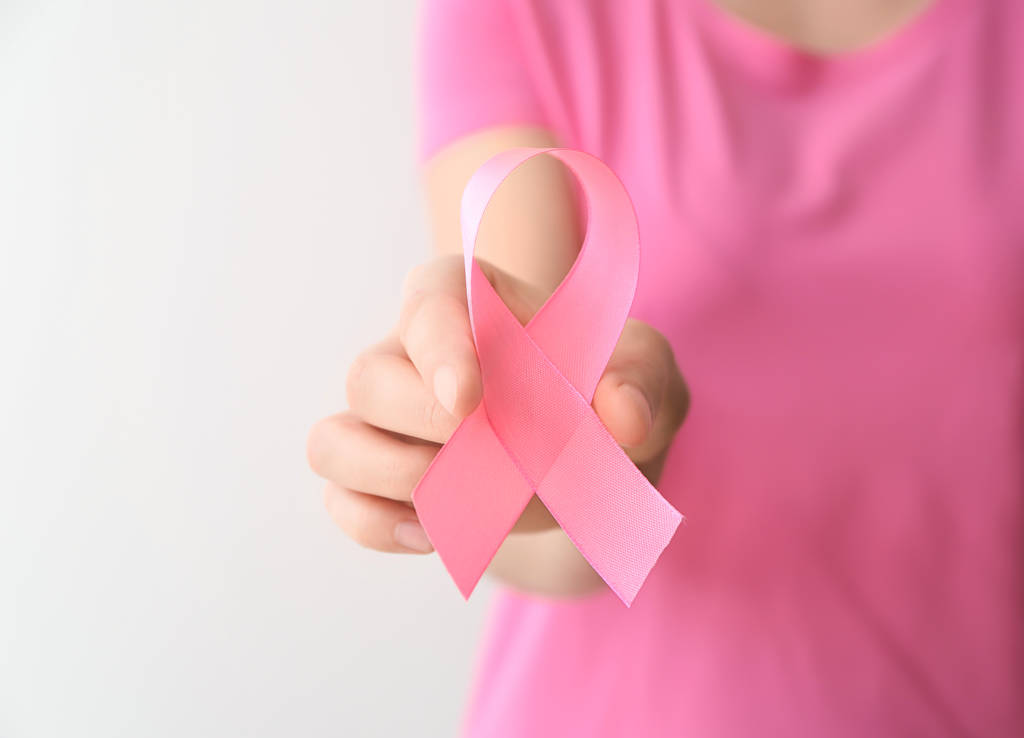Discover the lifestyle habits that may increase your risk of developing cancer.
Are There Lifestyle Habits That Increase Cancer Risk?
It’s no secret that our lifestyle choices can impact our overall health and well-being. But when it comes to cancer, are there specific habits that increase our risk? In this article, we’ll dive into the fascinating world of lifestyle habits and their potential links to cancer development. So, grab a cup of tea and let’s explore!

Understanding the Link Between Lifestyle Habits and Cancer
When it comes to cancer, there’s often a delicate interplay between genetics and lifestyle. While our genes play a significant role in determining our susceptibility to cancer, lifestyle choices can also exert their influence. Research suggests that up to one-third of all cancer cases are preventable through lifestyle modifications. That means you have the power to take control of your health!
So, how exactly do lifestyle habits influence cancer risk? Let’s break it down.
The Role of Genetics vs Lifestyle in Cancer Development
Cancer is undoubtedly a complex disease that can be influenced by a variety of factors. While some individuals may have a higher genetic predisposition to certain cancers, lifestyle habits can either amplify or mitigate this risk. It’s like a dance between nature and nurture, where your genes set the stage, but your lifestyle choices determine the steps.
For example, let’s consider breast cancer. While certain genetic mutations, such as BRCA1 and BRCA2, are known to increase the risk of developing breast cancer, lifestyle factors can also play a crucial role. Women who have these genetic mutations can further increase their risk by engaging in unhealthy lifestyle habits, such as smoking, excessive alcohol consumption, and a sedentary lifestyle. On the other hand, women with the same genetic mutations who adopt a healthy lifestyle, including regular exercise, a balanced diet, and limited alcohol intake, can significantly reduce their risk.
How Lifestyle Habits Influence Cancer Risk
One of the main ways lifestyle habits influence cancer risk is through their impact on inflammation and oxidative stress. Certain lifestyle choices, such as smoking, poor diet, and lack of exercise, can promote chronic inflammation and increase oxidative stress, creating a favorable environment for cancer development. On the flip side, healthy lifestyle habits, like a balanced diet and regular exercise, can reduce inflammation and oxidative stress.
Let’s delve deeper into the role of inflammation. When our bodies experience an injury or infection, inflammation is a natural response that helps fight off harmful invaders and promote healing. However, chronic inflammation, which can result from long-term exposure to unhealthy lifestyle habits, can have detrimental effects. It can damage our DNA, disrupt normal cell functioning, and contribute to the development of cancer.
Similarly, oxidative stress, which occurs when there is an imbalance between the production of free radicals and the body’s ability to neutralize them, can also contribute to cancer development. Unhealthy lifestyle habits, such as a diet high in processed foods and lacking in antioxidants, can increase oxidative stress, leading to DNA damage and an increased risk of cancer.
On the other hand, adopting healthy lifestyle habits can help reduce inflammation and oxidative stress. Regular physical activity has been shown to have anti-inflammatory effects, while a diet rich in fruits, vegetables, whole grains, and lean proteins provides the body with essential antioxidants that help combat oxidative stress.
In addition to inflammation and oxidative stress, lifestyle habits can also influence cancer risk through other mechanisms. For instance, obesity, which can result from a sedentary lifestyle and poor dietary choices, is a known risk factor for various types of cancer, including breast, colorectal, and pancreatic cancer. Hormonal imbalances, which can be influenced by lifestyle factors such as stress and sleep patterns, can also contribute to cancer development.
By understanding the link between lifestyle habits and cancer, we can make informed choices to reduce our risk. It’s important to remember that while genetics may play a role, our lifestyle choices have a significant impact on our overall health and well-being. So, let’s strive for a healthy lifestyle that promotes cancer prevention and empowers us to take control of our own health!
Specific Lifestyle Habits That May Increase Cancer Risk
Now that we understand how lifestyle habits can influence cancer risk, let’s take a closer look at some specific habits that might raise the odds of developing this formidable disease.
But before we dive into the details, it’s important to note that cancer is a complex disease with various factors contributing to its development. Lifestyle habits are just one piece of the puzzle, and genetics, environmental factors, and other variables also play a role.
The Impact of Smoking and Alcohol Consumption
It’s no surprise that smoking and excessive alcohol consumption are at the top of the list when it comes to cancer risk factors. Smoking not only affects the lungs but is also linked to various types of cancer, including lung, bladder, and throat cancer.
When you inhale cigarette smoke, you expose your body to a cocktail of harmful chemicals, such as benzene, formaldehyde, and arsenic. These substances can damage your DNA, leading to mutations that can eventually result in cancer.
Similarly, heavy alcohol consumption can increase the risk of developing liver, esophageal, and breast cancer. Alcohol is metabolized in the body to acetaldehyde, a toxic substance that can cause DNA damage and impair the body’s ability to repair itself.
So, stub out that cigarette and sip your cocktail in moderation! Your body will thank you.
The Role of Diet and Nutrition in Cancer Risk
What we put on our plates has a profound impact on our health, and cancer risk is no exception. A diet high in processed foods, unhealthy fats, and sugary drinks has been associated with an increased risk of several cancers, including colorectal, breast, and prostate cancer.
Processed foods often contain additives, preservatives, and artificial ingredients that may promote inflammation and oxidative stress in the body. These processes can damage cells and increase the risk of cancer development.
On the flip side, a diet rich in fruits, vegetables, whole grains, and lean proteins provides essential nutrients and antioxidants, helping to reduce the risk of cancer. Fruits and vegetables are packed with vitamins, minerals, and fiber that support a healthy immune system and help prevent DNA damage.
So, next time you’re planning your meals, make sure to include a colorful array of fruits and vegetables to give your body the best chance at fighting off cancer.
Physical Activity and its Relation to Cancer
We all know that exercise is good for us, but did you know it can also lower your risk of developing cancer? Regular physical activity has been shown to reduce the risk of colon, breast, and endometrial cancers.
Exercise helps in maintaining a healthy weight, boosting the immune system, and reducing inflammation, all of which contribute to a lower cancer risk. When you engage in physical activity, you improve your body’s ability to regulate hormones and reduce the levels of insulin and estrogen, which can promote the growth of certain cancers.
So, get moving and find an activity you enjoy! Whether it’s going for a brisk walk, dancing, swimming, or playing a sport, every bit of exercise counts towards reducing your cancer risk.
The Effect of Sun Exposure and Cancer
While the sun provides us with Vitamin D and boosts our mood, excessive sun exposure can increase our risk of skin cancer. Ultraviolet (UV) rays from the sun can damage our skin’s DNA, leading to the development of skin cancer.
It’s important to strike a balance between enjoying the benefits of the sun and protecting your skin. Applying sunscreen with a high sun protection factor (SPF), wearing protective clothing, and seeking shade during peak sun hours are essential steps to reduce this risk.
Additionally, don’t forget your hat and sunglasses! These accessories not only add a touch of style but also provide extra protection for your face and eyes against harmful UV rays.
Remember, moderation is key when it comes to sun exposure. So, enjoy the outdoors responsibly and take the necessary precautions to keep your skin healthy.
The Science Behind Lifestyle Habits and Cancer
Now that we’ve explored how lifestyle habits can impact cancer risk, let’s journey into the fascinating world of the science behind it all.
Biological Mechanisms Linking Lifestyle to Cancer
Research has shed light on several biological mechanisms that explain how lifestyle habits can influence cancer development. Chronic inflammation, for example, plays a significant role in the initiation and progression of cancer. Lifestyle choices that promote inflammation, such as smoking and an unhealthy diet, can contribute to the risk of developing cancer. On the other hand, lifestyle habits like regular exercise and a healthy diet can reduce inflammation, providing a protective effect against cancer.
The Role of Chronic Inflammation in Cancer
Chronic inflammation acts like a double-edged sword. While acute inflammation is a natural immune response to injury or infection, chronic inflammation can wreak havoc on our cells. Prolonged inflammation can lead to DNA damage and the formation of cancerous tumors. By adopting healthy lifestyle habits, we can help keep inflammation in check and reduce our cancer risk.
Reducing Cancer Risk Through Lifestyle Changes
Now that we have a better understanding of the link between lifestyle habits and cancer risk, let’s explore some practical steps you can take to reduce your chances of developing this formidable disease.

Steps to a Healthier Diet for Cancer Prevention
Eating a nutritious diet doesn’t have to be boring or complicated. Embrace a rainbow of fruits and vegetables, opt for whole grains over refined versions, choose lean sources of protein, and reduce your intake of processed foods and added sugars. Remember, small changes can add up to significant health benefits!
The Benefits of Regular Exercise in Cancer Prevention
Exercise is a wonderful way to take care of your body and reduce your cancer risk. Aim for at least 150 minutes of moderate-intensity exercise or 75 minutes of vigorous-intensity exercise each week. Find activities you enjoy, whether it’s dancing, swimming, or practicing yoga. The key is to stay consistent and have fun along the way.
Quitting Smoking and Limiting Alcohol for Cancer Risk Reduction
If you’re a smoker, quitting is one of the most impactful steps you can take to improve your health and reduce cancer risk. Seek support from friends, family, or healthcare professionals to help you on your journey to a smoke-free life. As for alcohol, moderation is key. Limit your intake to one drink per day for women and two drinks per day for men.
Remember, prevention is always better than cure. By adopting healthy lifestyle habits, you are taking proactive steps to reduce your cancer risk and improve your overall well-being. So, lace up those sneakers, load up your plate with colorful fruits and vegetables, and embrace a lifestyle that nurtures your health. Together, we can win the battle against cancer, one healthy habit at a time!







Your point of view caught my eye and was very interesting. Thanks. I have a question for you.
Your point of view caught my eye and was very interesting. Thanks. I have a question for you.